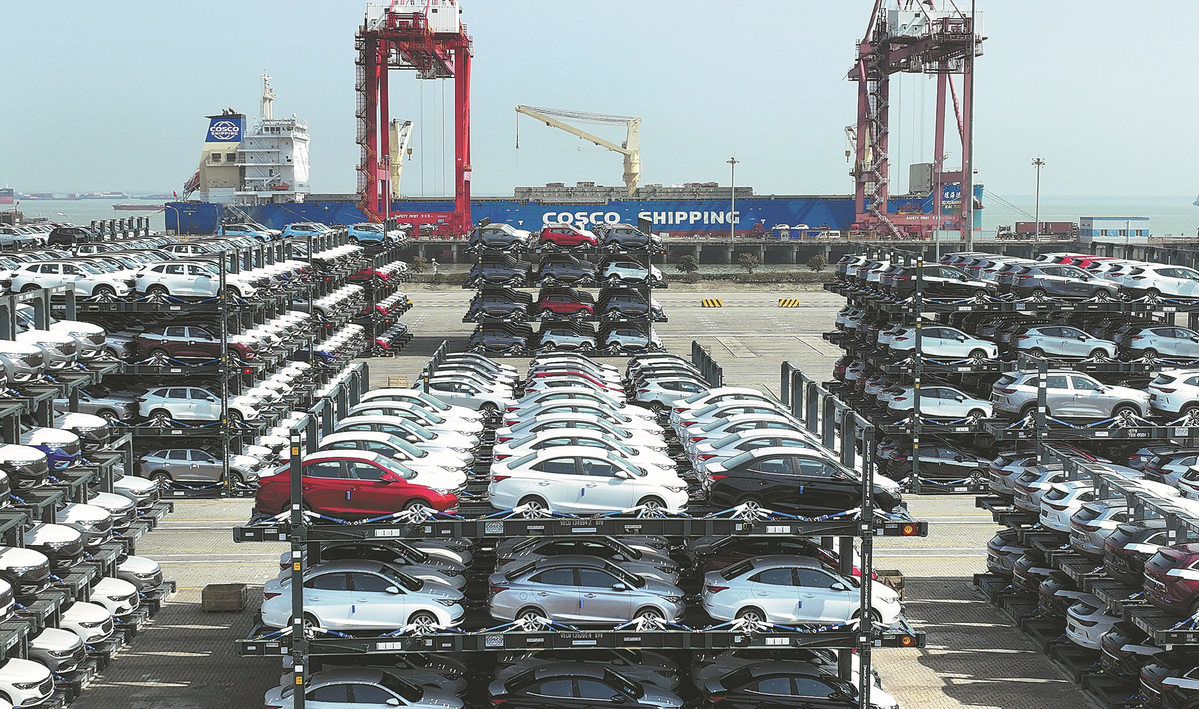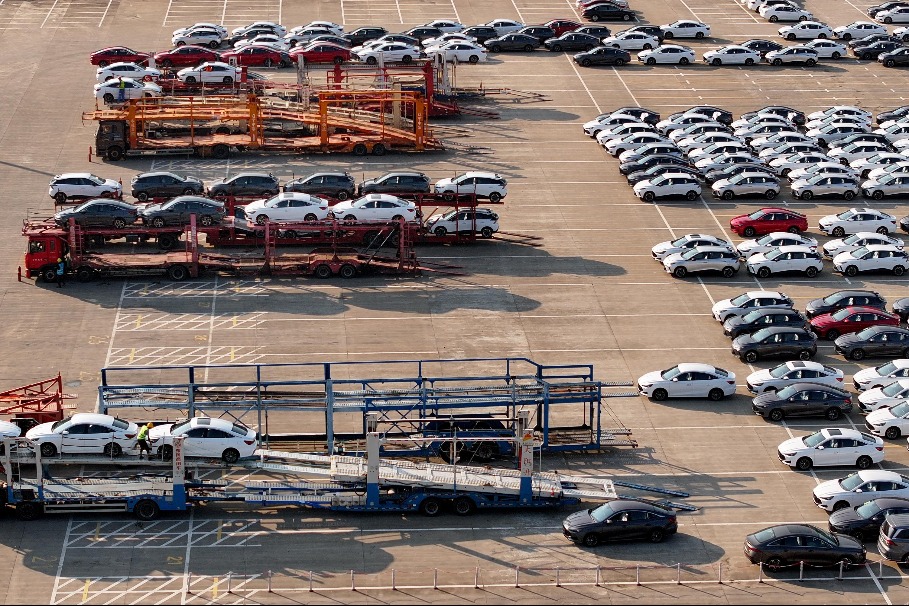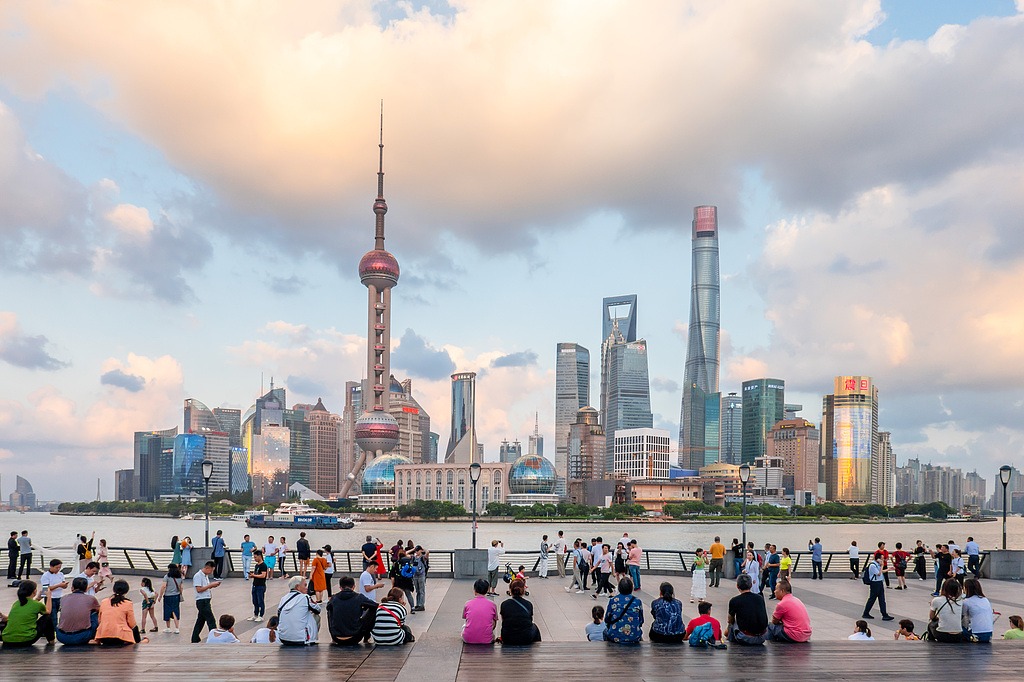EU probe into China EV makers 'unfair'
Car representatives say move a breach of WTO rules and poses threat to jobs
By CHEN WEIHUA in Brussels | China Daily Global | Updated: 2024-04-15 09:20

The European Commission's anti-subsidy investigation into Chinese electric vehicle makers is unfair, amounts to double standards and violates World Trade Organization rules, a Chinese industry body says.
The China Chamber of Commerce for Import and Export of Machinery and Electronic Products and its legal adviser in Brussels, VVGB, an international law firm specializing in EU trade and competition law, on Friday called on the European Commission not to impose any measures as a result of the investigation.
The chamber, which represents 12 Chinese EV makers, including BYD, Geely and SAIC, which were selected by the commission as samples in the investigation, had a hearing with the commission in Brussels on Thursday.
Shi Yonghong, vice-president of the chamber, said the investigation was initiated by the commission in the absence of a complaint from the EU industry and based on an allegation of threat of injury, something he described as rare, especially in the EU.
The German Automobile Industry Association and several EV makers and industry representatives in the EU have expressed opposition to the investigation, he said.
The head of the German association, Hildegard Mueller, told German media last week that the association opposes any EU tariffs on EV imports from China, and that they pose a risk of starting a trade war and threaten German jobs.
Shi described the case against Chinese EVs as "a perfect example of the EU's double standards".
The European Commission's complaints about Chinese EV subsidies are made in the face of billions of euros of subsidies that the EU provides to its own battery and EV makers, and the huge amount of subsidies the US government has earmarked for EVs in the Inflation Reduction Act.
The commission's sample selection was unfair because it excluded the top two EV exporters from China, Shi said, without naming the companies, but which are widely known to be Tesla and Renault, both of which make EVs in China for export to the EU.
Technological advances
Chinese EVs thrived because of the country's early start, technological advances, economy of scale, robust supply chains and fierce domestic competition, Shi said, rather than on the back of subsidies alleged by the European Commission.
Chinese companies are being treated unfairly and not objectively in the investigation, he said.
"In any event, it is not being conducted in accordance with the WTO rules."
Trade defense measures will harm all those involved, he said.
"The strength and growth of EV industries in EU and China lie in collaboration, not conflict. The Chinese side is still open to, and hopeful of, a balanced outcome in the investigation."
Edwin Vermulst, a VVGB Law partner, echoed the views, saying there are two notable inconsistencies in the European Commission investigation.
The largest exporter should normally be sampled but in this case was excluded by the commission, he said.
He also accused the commission of a lack of transparency in the investigation.
At an event in Paris recently, China's Minister of Commerce Wang Wentao said China's EV industry has helped greatly in global efforts to tackle climate change and the transition to a green and low-carbon world.
China will support its EV makers in defending their rights and interests, Wang said.
Shi said: "The European Commission should support the trade and investment partnership of Chinese and European auto industries and work to promote a healthy market environment for Chinese and EU companies to jointly tackle the challenges of climate change through the green transformation of our economies."
























